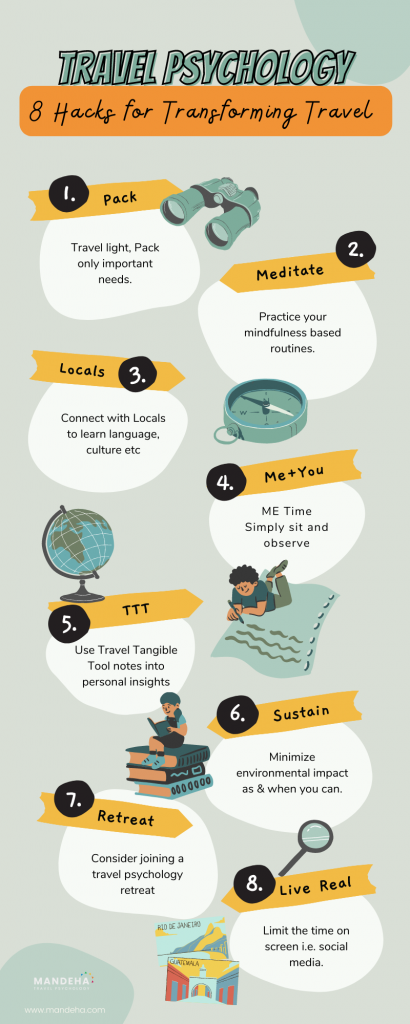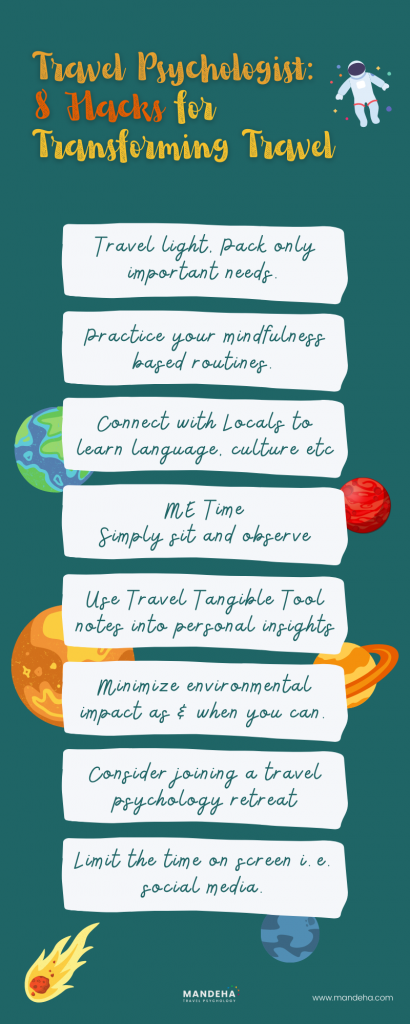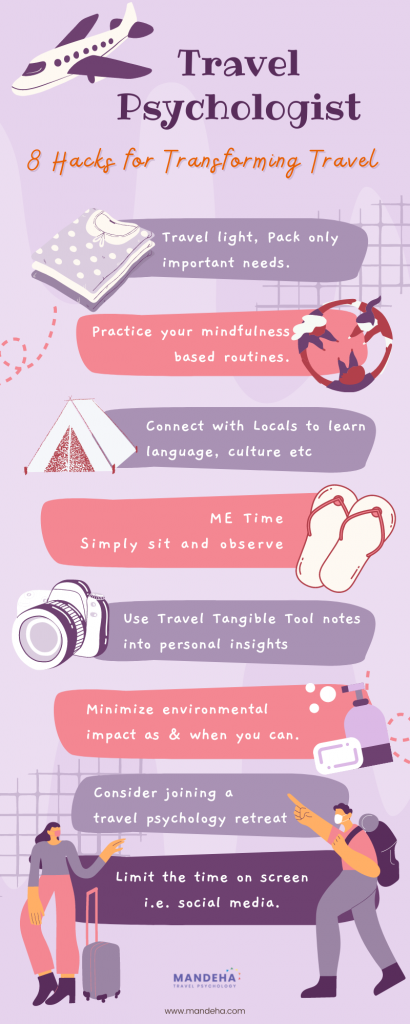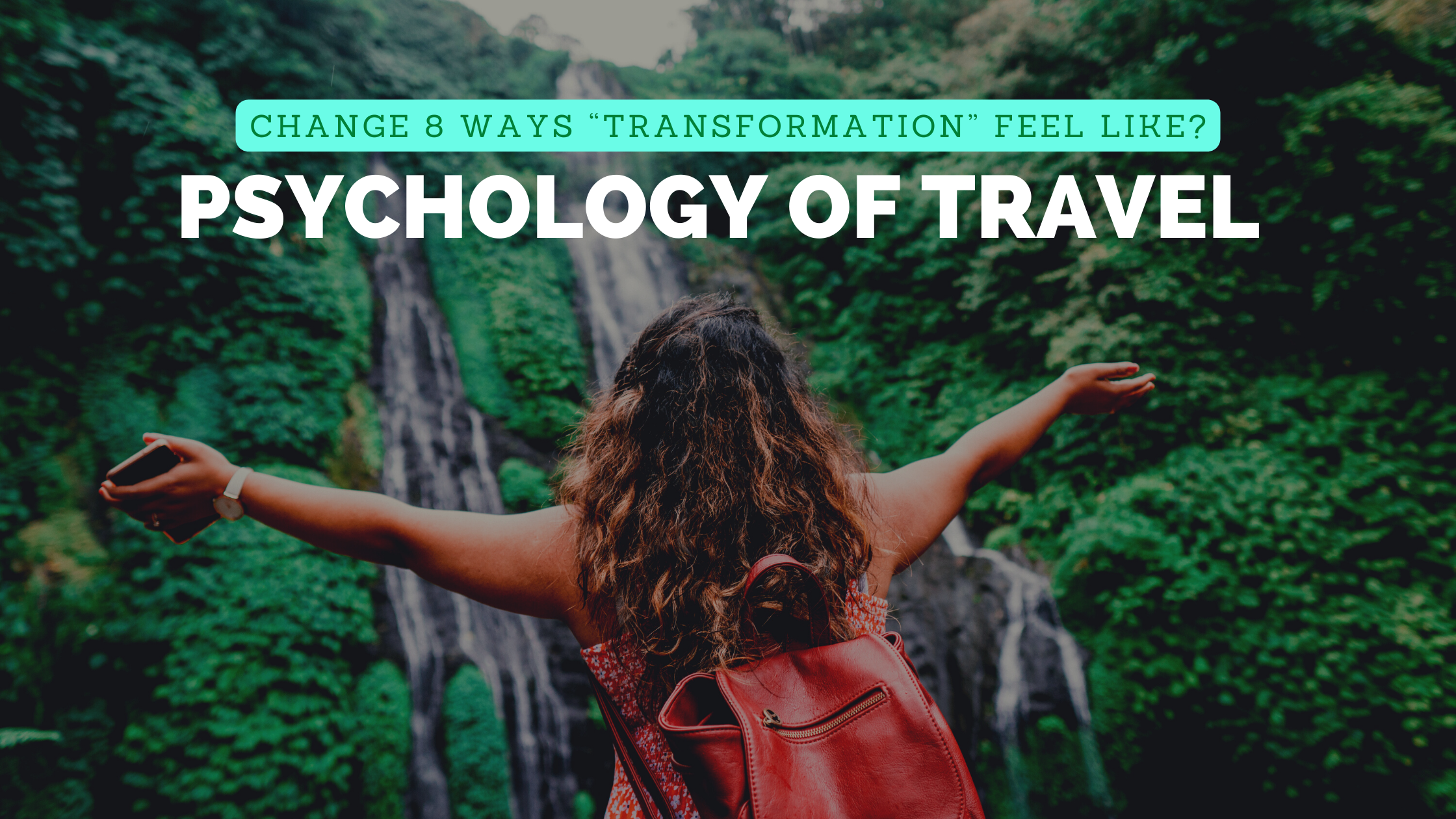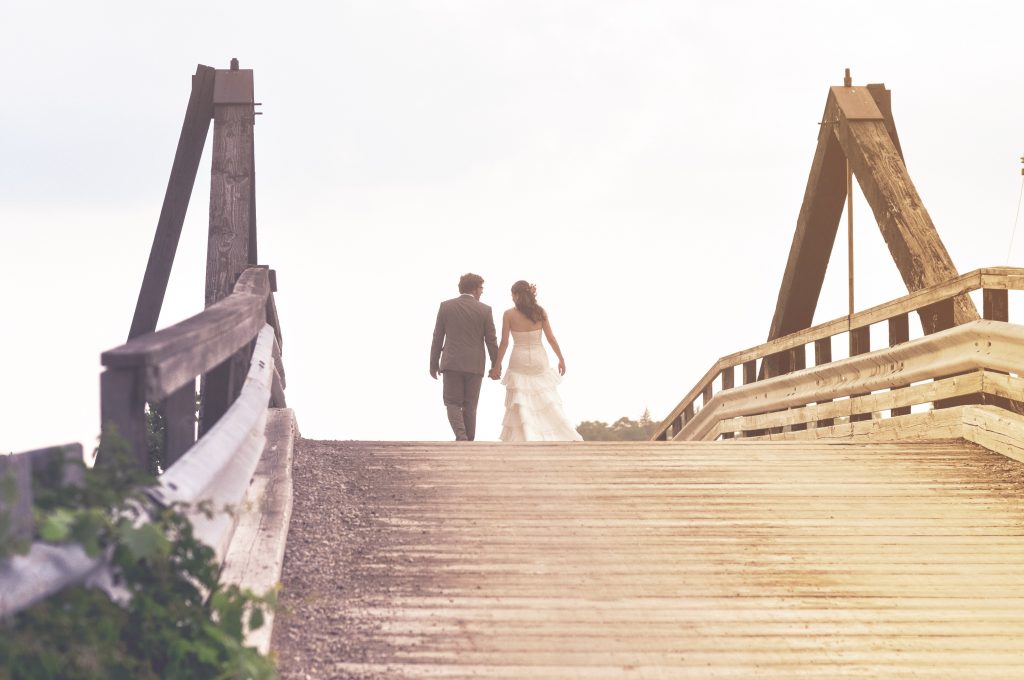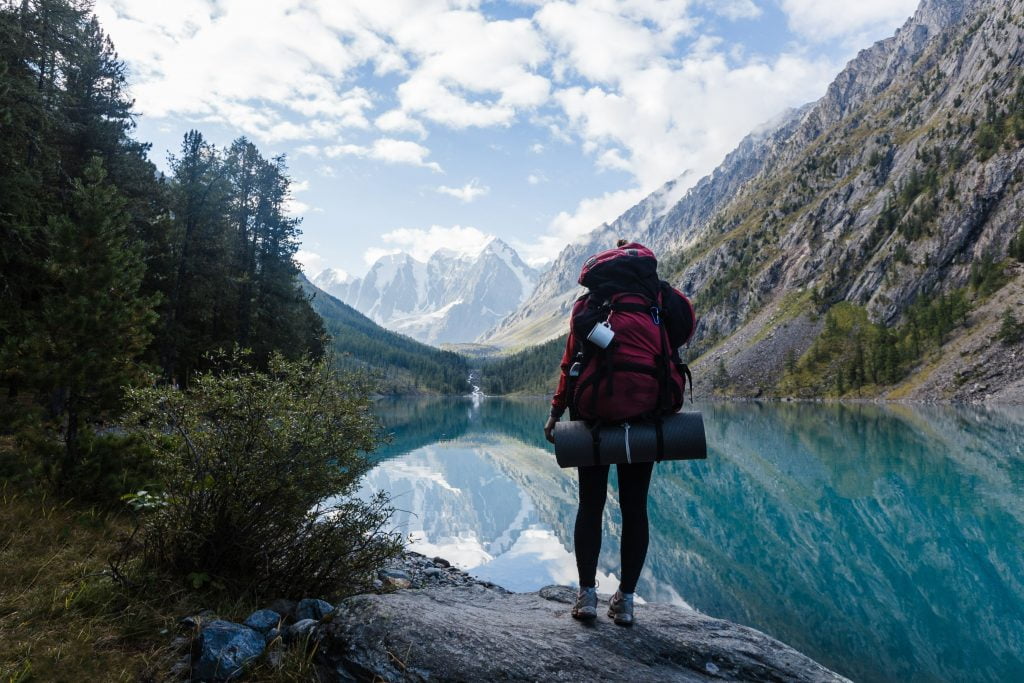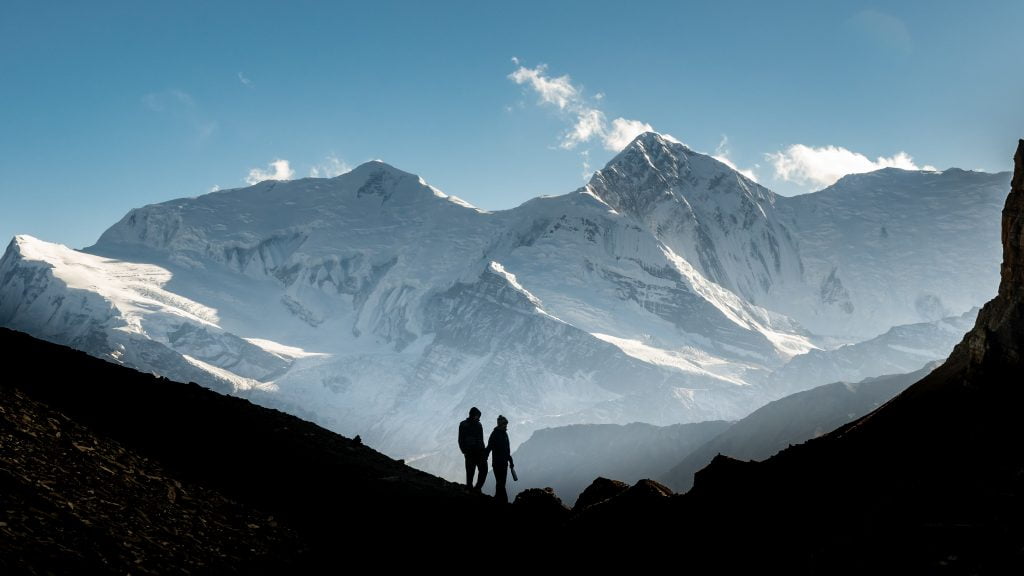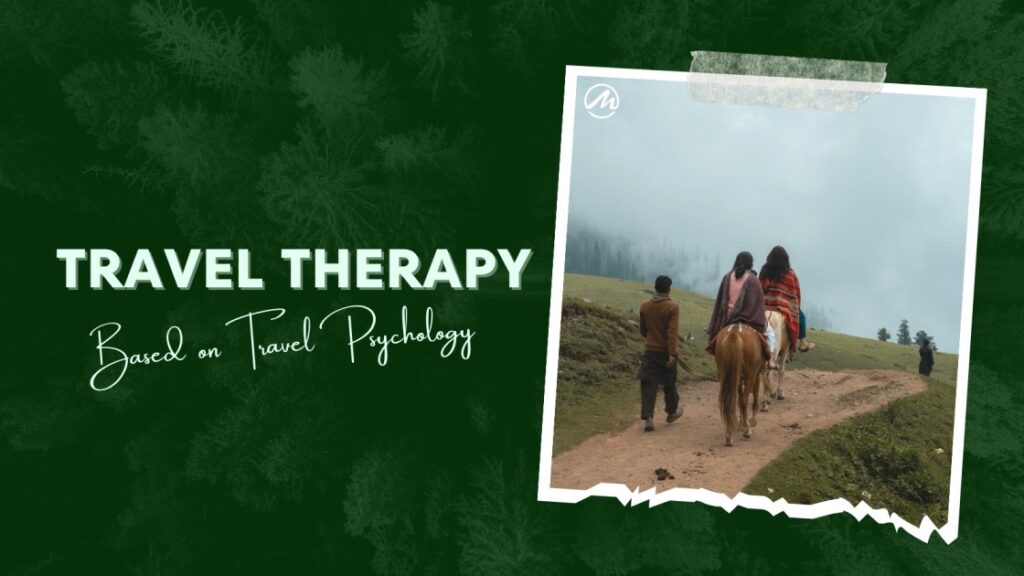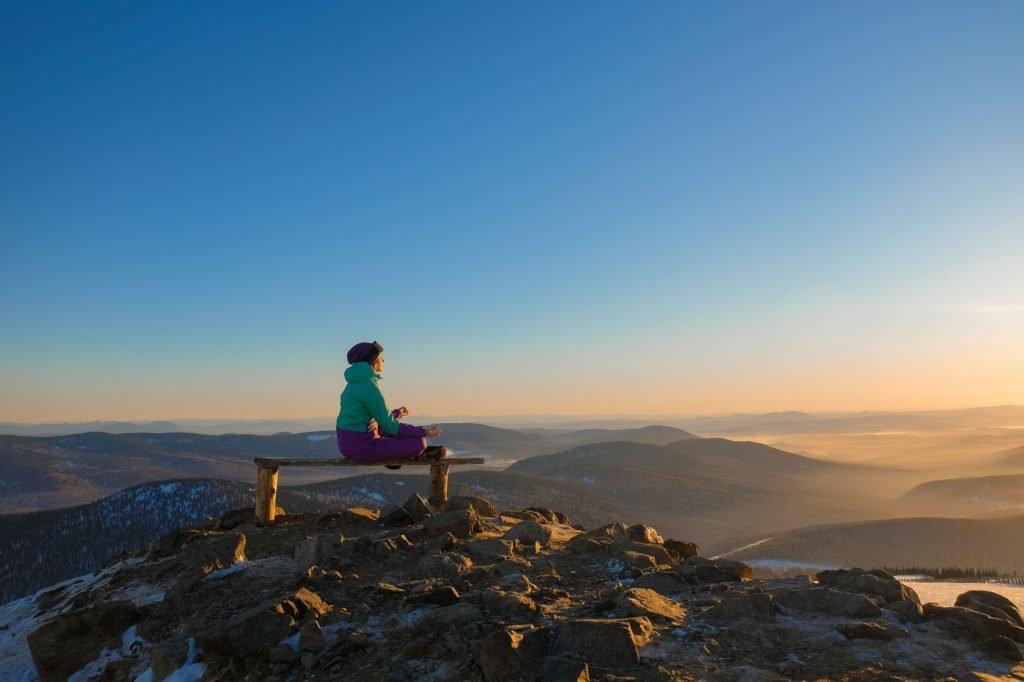Psychology of Travel change to Transformation is almost never what we picture it to be.
When we think of wildly successful Travelers our minds easily jump to travel bloggers or influencers balancing a life of social media cover story photoshoots with keynote presentations and blogging interviews. Our most “successful change” Travelers often have this air of glamor around their success.
As it happens, Traveler “Transformation” feels way less glamorous. In fact, the most exciting success milestones are often so mundane when they occur that we don’t even realize they happened. This change isn’t the result of a single, dramatic event, but rather a collection of tiny moments. Looking back, we realize these seemingly insignificant instances were truly defining in our transformation.
“I’m so busy being heads down trying to build my life that I don’t even know what change would look and feel like. When a Traveler is finally transforming, where does that feeling of accomplishment come from, and do we even notice when it happens?”
Experiential Traveller
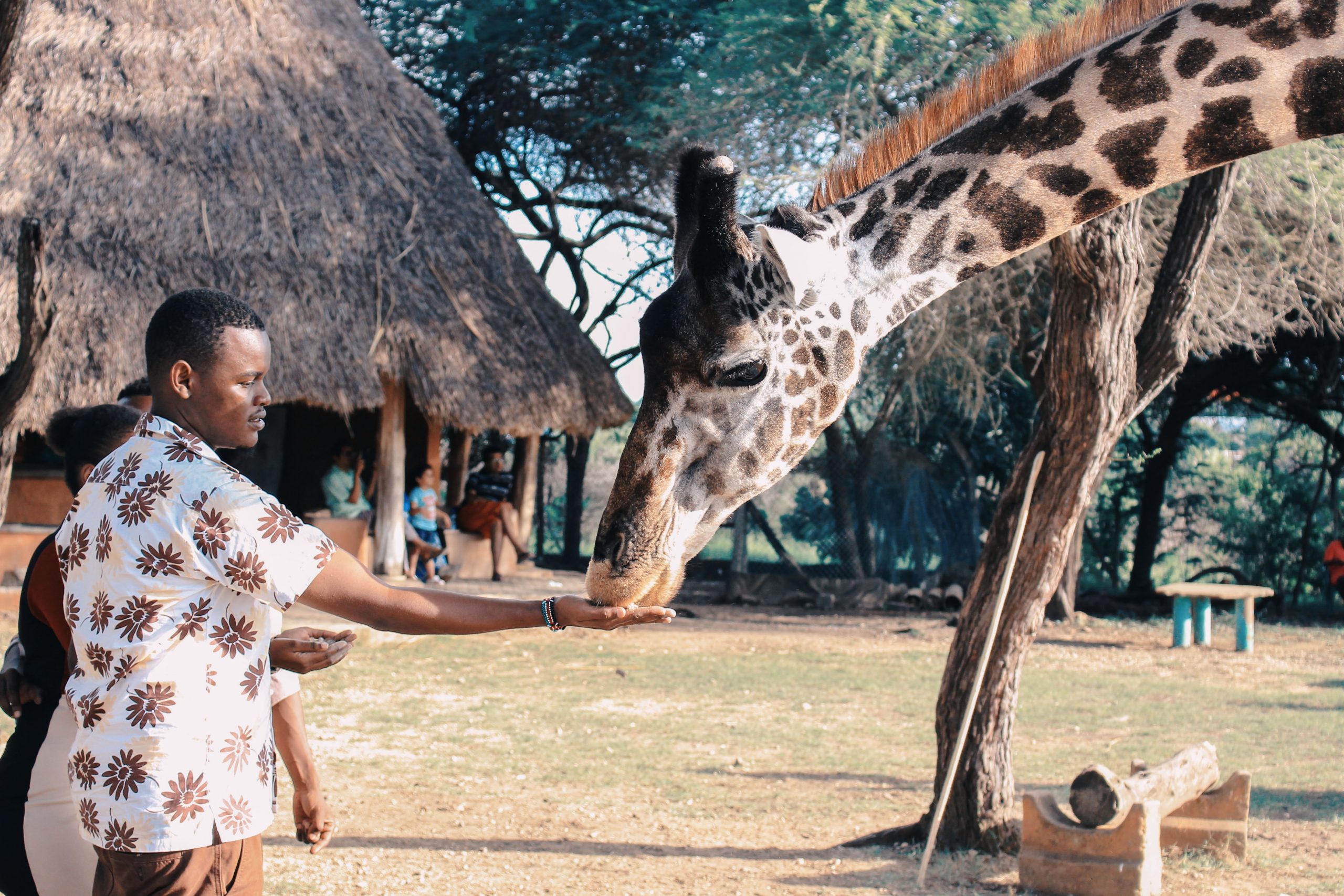
We Always Travel for Self
For most of our psychology of travel change, we feel like we’re living day to day, week to week. During those periods we’re constantly trying to run around experiencing just enough events, feeling just enough emotional insights so that we can once again explore and live long enough to do it all over again.
It’s fcuking exhausting.
Then one day, our life actually feels something. Our emotions channels start to enhance. Thoughts start rolling in, lo and behold, we finally make decisions without having our weekly heart attack. And then it happens again, and again, until one day we actually get a full night of sleep and realize that in fact, this transformation is going to continue to make changes I seek without killing us in the process. That’s what psychology of travel Transformed life process feels like.
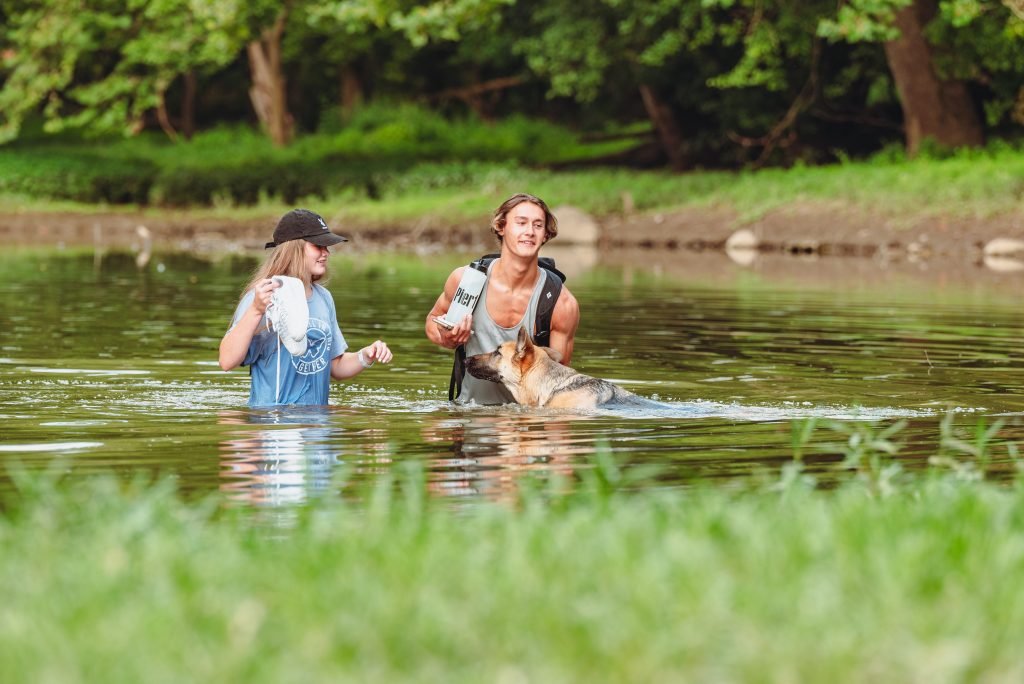
We Aren’t Personally Leveraged
Since the beginning, we fought this constant battle between life growth and our dwindling personal environment. Every day it was “Do we enhance our emotional budget, or do I pay down my personal hurdles?” All round of experiences wasn’t just filling the journey coffers, it was preventing our own from being further depleted.
Gradually, we normalized it: linking personal advancement to self-sacrifice, burning ourselves out financially, emotionally, and physically. We utterly lost sight of a time when work meant getting paid, not paying to work.
Something weird happened — we made some psychology of travel change. Life, once a torrent demanding everything we offered, did the unthinkable and gave something back. Initially stunned by this reversal, we dismissed it as a mere fluke.
Then, life did it again, and again. It started transforming us to more value than we could have ever made at a stage of life we lived in the past, and in some cases, more than we thought we were even worth. Everyone wanted to take it from us (a subject for a different time…).
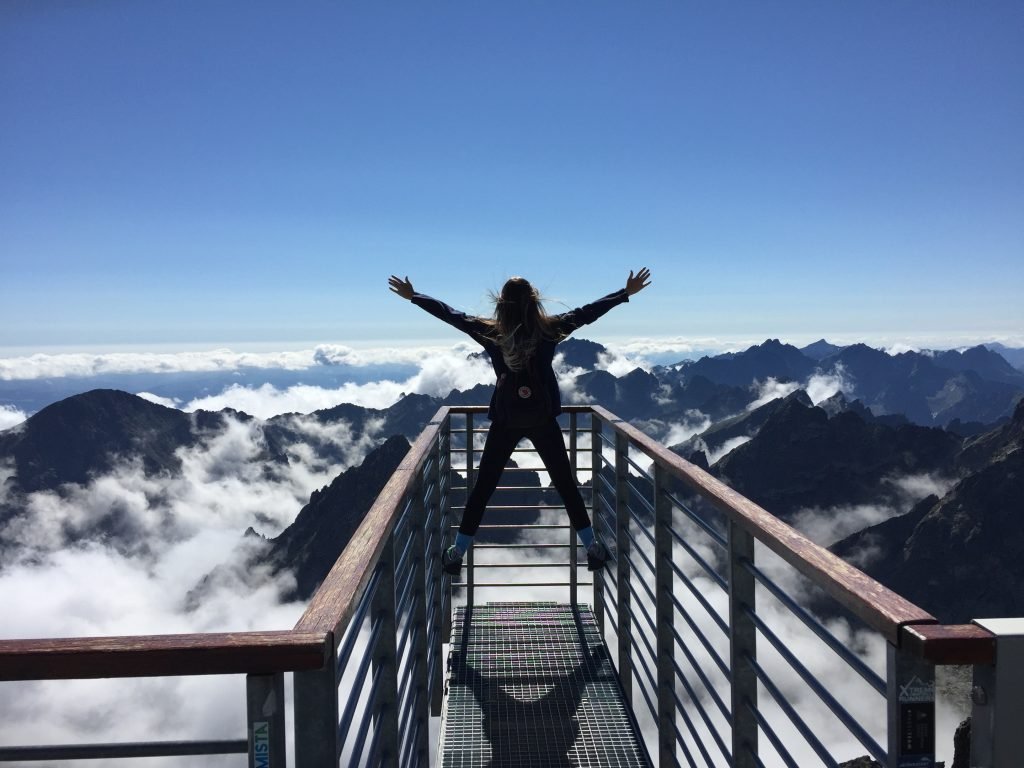
Someone Says “Thank You”
We spend the majority of our early Traveler journeys saying “Please” and asking for something. It leveraged in so many ways, and our life expects something from us. The stress and it makes sure we are doomed (seems reasonable!), our take on psychology of travel change and expect a positive return (we promised), and we sell to social media, and they get super, super, super demanding (suck it up!).
All of us spend so much time asking for things, trying to make our life happy, to deliver on so many promises that we forget that all of our efforts are in the service of helping ourselves — emotionally, spiritually, physically and damn near transforming. Consumed in our own mule, and we just take it.
Then one day, at lunch with a travel psychologist, everyone finds out they just bought the personal insights of my life. We’re enjoying a great meal with so much pride that all of the work we’ve put in together was able to make this dream happen. Not our dream — my dream. At that moment, he looked us straight in the eye and said, “Thank you.” Everything we’ve done, all the sacrifices we’ve made, the promises we’ve kept, has earned us those two simple words.
At that moment, we feel transformed. From that point on, nothing else compares.
Travel Psychologist: 8 Hacks for Transforming Travel
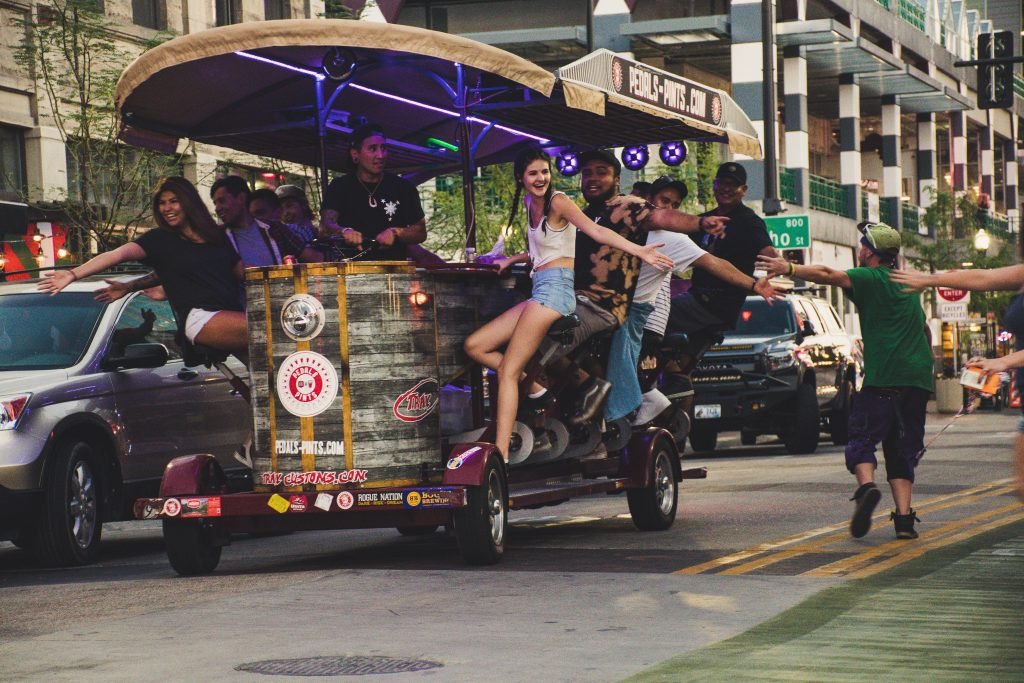
1. Travel light, Pack only important needs.
Your specific packing needs will depend on the psychology of travel change you’re doing and the duration of your trip, but I always try to minimize the weight I’m carrying by bringing with me only what I absolutely need.
You may have to put some extra care and consideration into the packing process in order to achieve this, but it’s worth it. Spend less time worrying about your things so you can fully immerse yourself in the experience.
Here are some tips to help you pack more mindfully for your next trip:
- Look for cosmetics with minimal packaging
- Opt for cruelty-free and biodegradable products where possible
- Bring versatile clothing items that can be worn on many different occasions
- Invest in high-quality items, like clothing and luggage, that are durable and made to last
- If you’re not willing to lose something, leave it at home
- Understand your airline’s carry-on restrictions and pack accordingly
- A mindful travel experience starts before we ever leave home with what we choose to put in our bags.
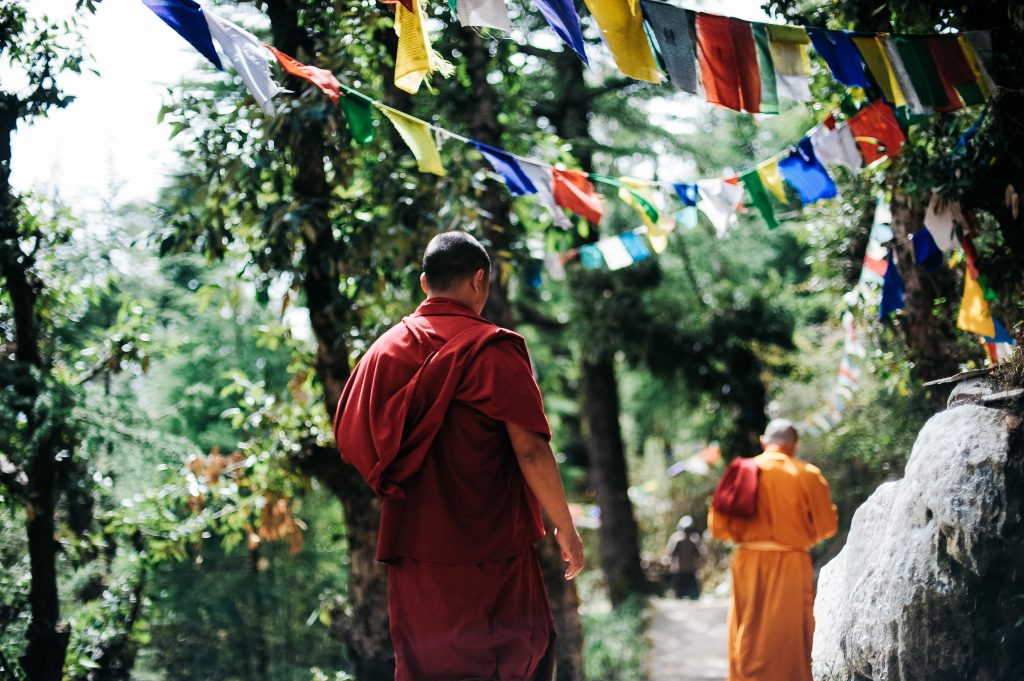
2. Practice mindfulness routines.
Do you have a mindfulness practice that helps you stay in the moment when you’re at home? Perhaps you spend a few minutes meditating each morning, or you write in a journal to help clear your head.
Maybe you’re an avid yogi and mindful movement is your medicine, or you find mantras to be particularly beneficial on mental wellness retreats.
Whatever your chosen practice is, bring it with you when you travel! There’s no reason you can’t incorporate the same habits into a trip, and you’ll get more out of the experience if you intended to boost psychology of travel.
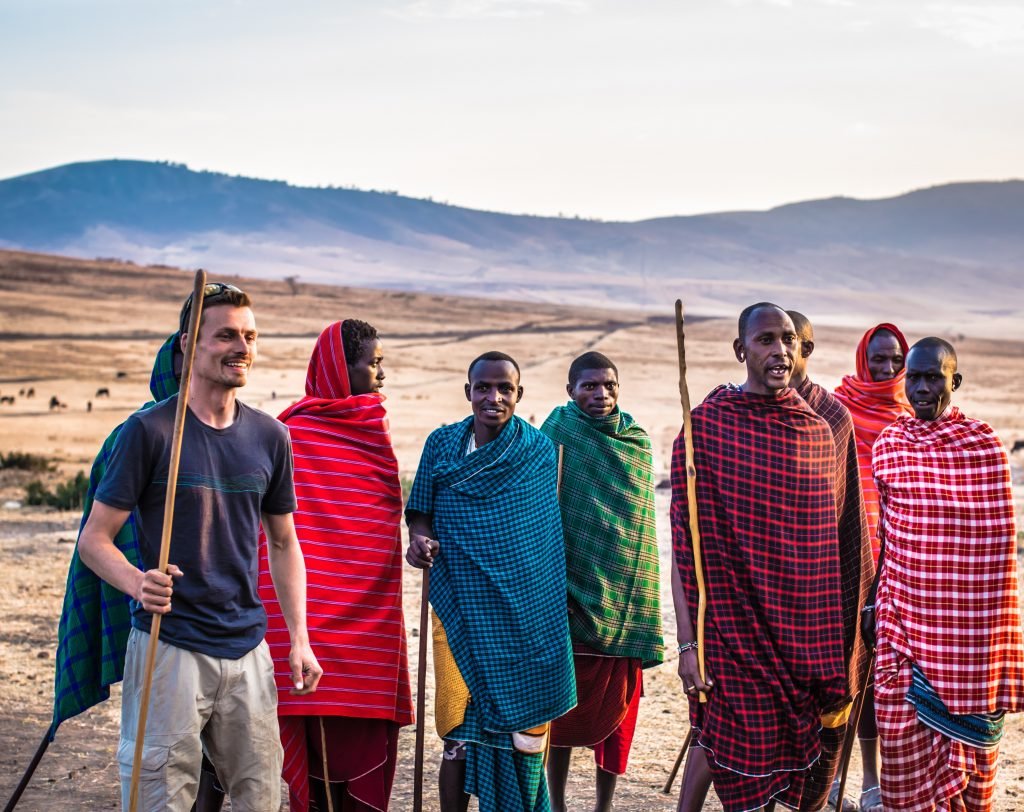
3. Connect with Locals to learn language, culture and more.
We can’t travel mindfully without engaging with the people we encounter. In order to truly understand a place, all of us must get to know the men and women that inhabit it.
So, we must remain open and inquisitive so we can learn their perspectives and how they differ from our own. Everyone must learn and abide by their cultural norms because we are guests in their home. When you accept and adopt the locals’ way of doing things, this shows that you respect their culture and are interested in understanding it. Psychology of travel change helps create opportunities for you to connect with–and learn from–the people you encounter.
Lastly, support local businesses whenever possible. You won’t find any culture in a City Starbucks, but you will find it in the hole-in-the-wall restaurants, locally owned boutiques, and family-run grocery stores.
4. ME Time – Simply sit and observe
One of my absolute favorite ways to practice mindfulness while traveling is to find a spot to sit in a popular area (a central plaza, a cafe with sidewalk seating, or a park, for example), make myself comfortable, and watch life go by.
It keeps my mind in the present, because I’m focused on the excitement of what’s going on around me rather than worrying about other things. I also find that I learn psychology of travel change so much about the local culture and way of life by taking time to observe. seeing what people are wearing, how they interact with one another, and how they spend their time.
In process it reminds me, too, that people are more or less the same no matter where they come from. We share many of the same needs, wants, and dreams.
All of us need to eat, we all have people we love and who love us, everyone like to relax and enjoy our free time. Everybody works hard and make mistakes. Truly driven by the things we are passionate about. Each one of us laugh, cry, hug, kiss, and walk hand-in-hand.
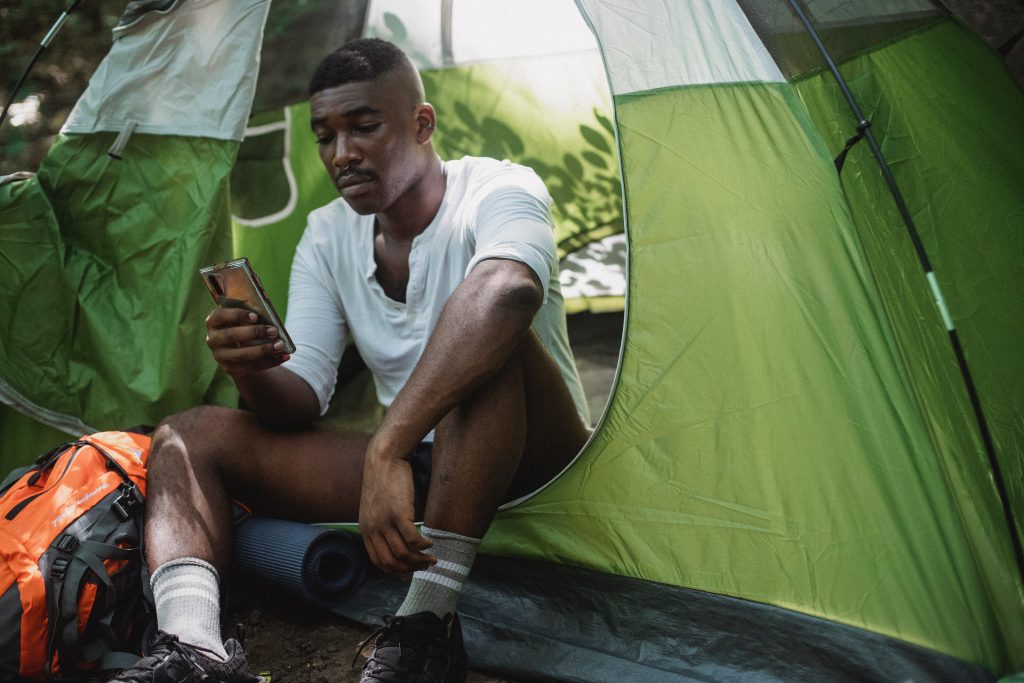
5. Use Travel Tangible Tool (TTT) to take notes into Personal insights.
If you want to remember your observations vividly long after your travel experience is over, jot down the interesting details in Tangible Travel Tool (TTT) as you sit and observe.
This always helps you to really pay attention to the tiny details that I would never have noticed if I were just rushing by, in a hurry to get somewhere. It helps you to recall the experience more clearly when recounting it to friends and family.
In progress helps you create a stronger connection to self.
Instead of just looking at the things around you, you begin to really see them; you begin to appreciate their beauty and their imperfections. The goal of psychology of travel is simply to immerse yourself in a moment that you will never experience in the same way again.
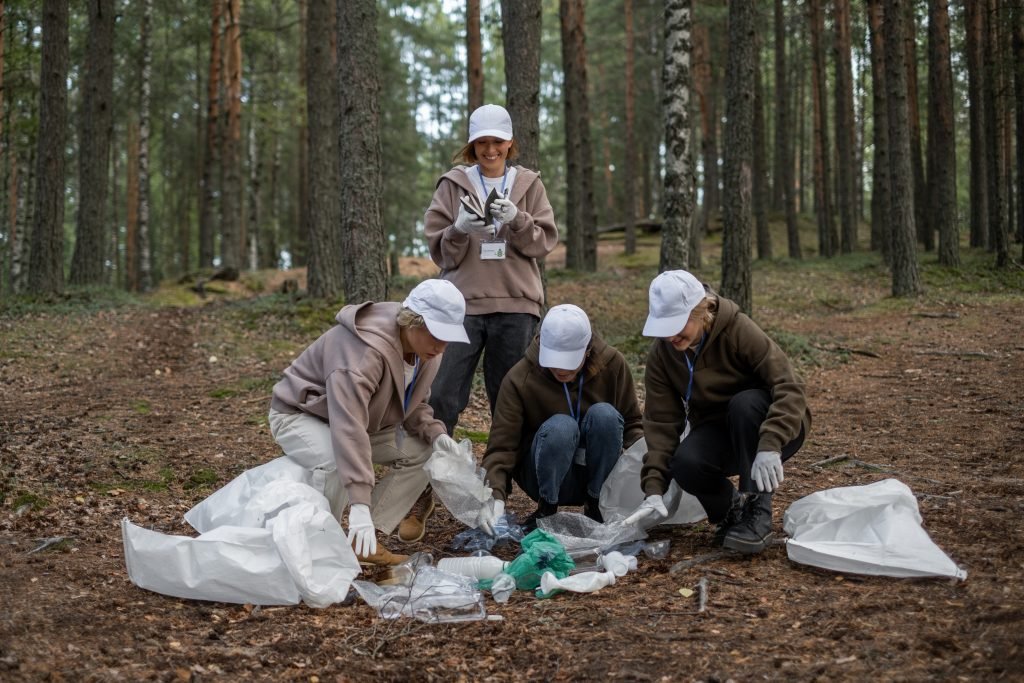
6. Psychology of travel change is to Minimize environmental impact.
Let’s get real for a second, guys. We all know travel isn’t exactly a low-impact hobby. Most modes of transportation send a whole lotta CO2 into the atmosphere, international flights especially.
Heavily touristed places can become overcrowded, and our very presence can put a strain on locals, their resources, and very way of life. We may engage in habits that create unnecessary waste, even if we wouldn’t normally do the same at home–things like buying plastic water bottles, using plastic grocery bags, or using plastic cutlery and Styrofoam takeaway containers.
Take some time prior to every trip to educate yourself on how to minimize your impact. Each destination will present new opportunities. There is always more to learn and more we can do.
Here are some simple changes you can make right now:
- Travel slowly, spending more time in fewer places.
- Take fewer flights and opt for ground transportation like trains and buses.
- Walk or take public transportation instead of taking taxis.
- If you are offered a straw in your drink, say no thank you.
- Pick up trash whenever you see it and find a place to recycle it if possible.
- Invest in reusable items that you can take with you on every trip.
- Water bottle
- Grocery bags
- Cutlery
- Most importantly, don’t underestimate the impact just one person’s choices can make. You can make a difference.
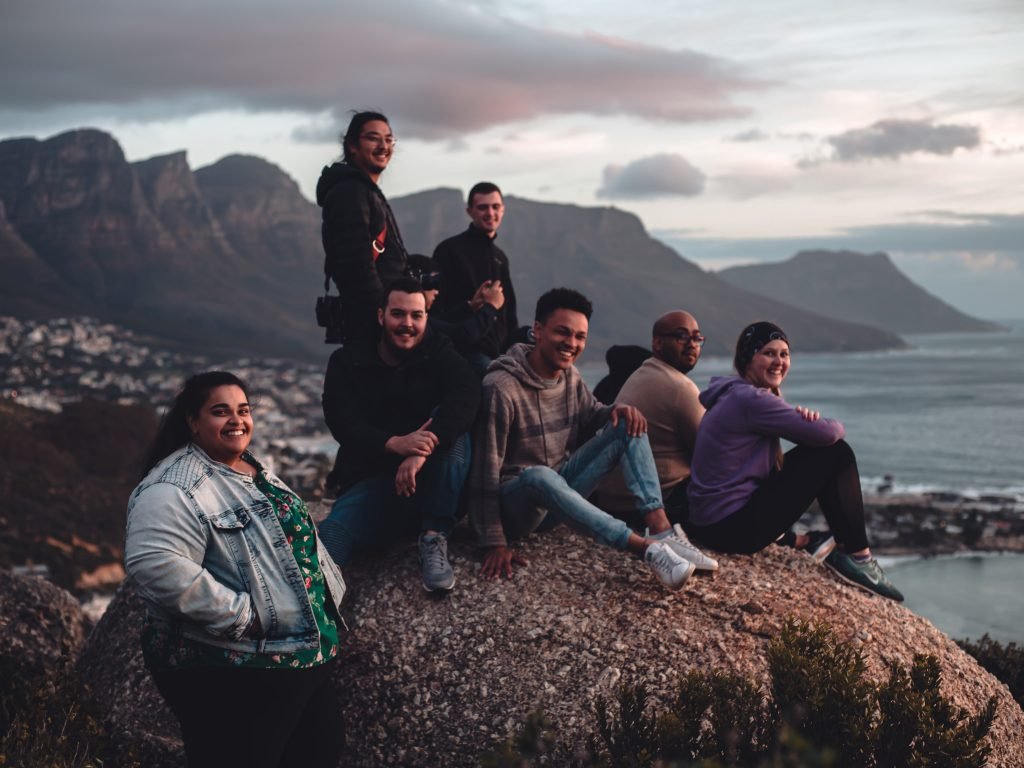
7. Consider joining a psychology of travel change projects
Mindful travel becomes all the simpler when you join a retreat that has psychology at its very core. You’ll surround yourself with people who practice intentional travel themselves, giving you guides and role models.
This will make you instantly connected to people with perspectives that differ from yours, priming you for an experience that breeds resilience and compassion.
Every one of you will engage daily in travel psychology practices relating to your physical fitness, nutrition, and appreciating nature. Surrounded by nature and disconnected from technology, gained a deep respect and admiration for the unforgiving yet stunningly beautiful desert landscape. Each of us shared quiet evenings eating meals fireside while exchanging stories and building friendships.
We gained physical strength and mental fortitude. All of us emerged on the other side of this experience as changed individuals, allowing us to live more mindful lives after the fact.

8. Psychology of travel change the time on screen i.e., social media.
In today’s world, it’s easy to become attached and even addicted to our mobile devices and feel as though we’re connected to the world when in reality, we’re becoming more and more detached.
Real life doesn’t happen on a screen–it’s happening right in front of you.
Put the phone down. Power it off. Break the addiction.
This is especially important while traveling. You’ll miss out on countless opportunities and precious moments if you’re constantly peering into a screen. Failing to connect with the people around you. Unable to notice the delightful little details that make each city special.
In short, you’ll close yourself off from the magic of psychology of travel change.
I know people aren’t going to stop using mobile phones, but we can wean ourselves off of them little by little.
Start by leaving it in another room while you sleep so it’s not the first thing you look at when you wake up in the morning. Leave it in your bag while you’re eating, especially if you’re sharing a meal with someone.
Don’t rely on Google Maps to help you navigate all the time–devote some time to getting lost and see what you discover along the way.
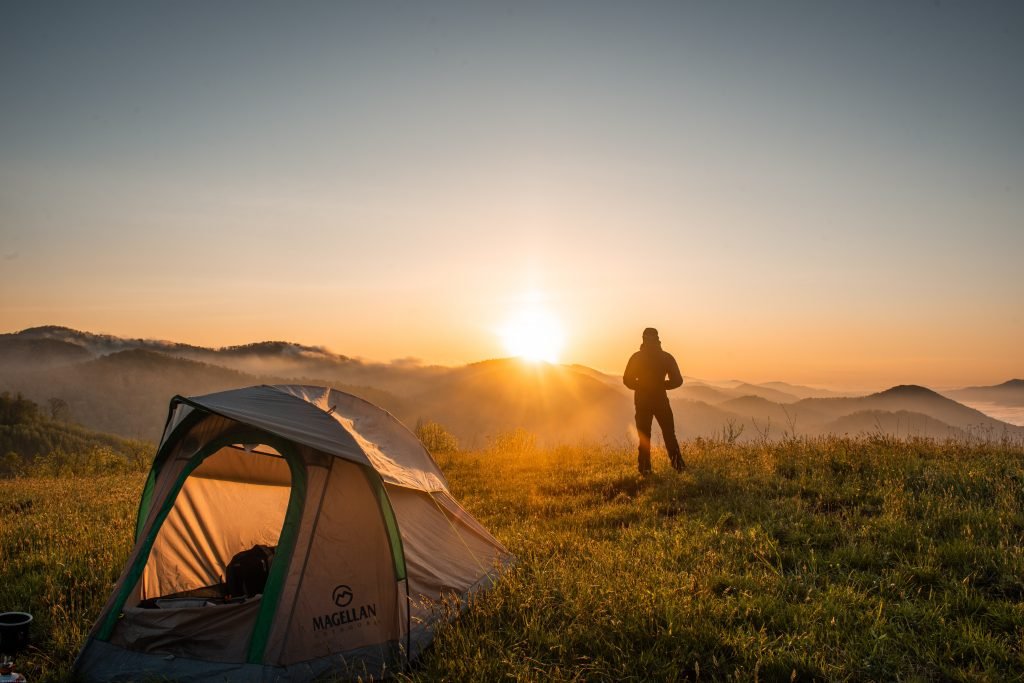
Share your Thoughts on Psychology of Travel Change
So, if things start feeling too easy or familiar, veering off the path is not only to be recommended, but also essential. Chuck the itinerary, hop on the bus and sit next to another person and smile. You may be met by a suspicious glower – or you may be met by a smile in return. It could be the start of a connection.
Reach out in understanding the psychology of travel rather than closing up in suspicion.
These psychology of tourism trends appear here to stay.
